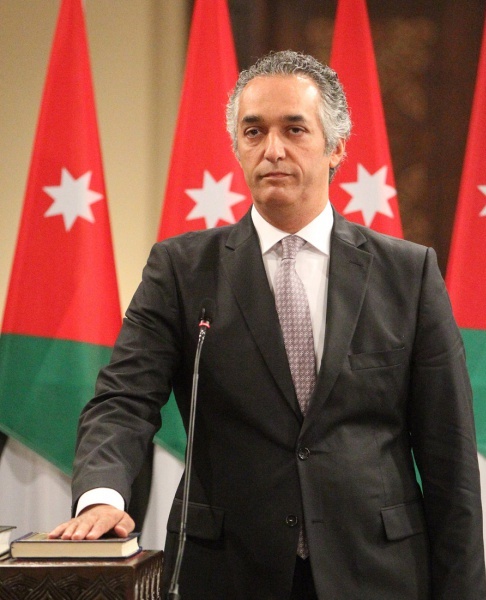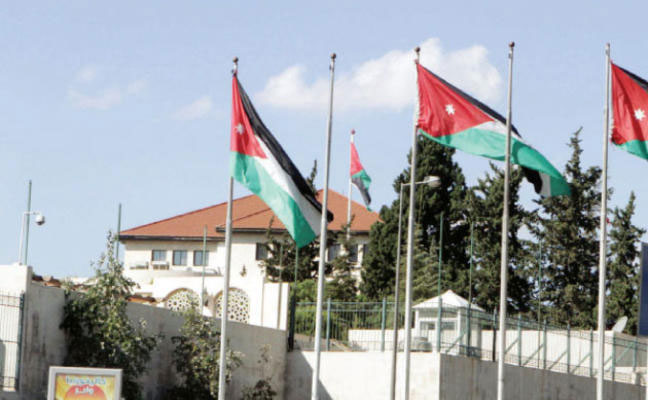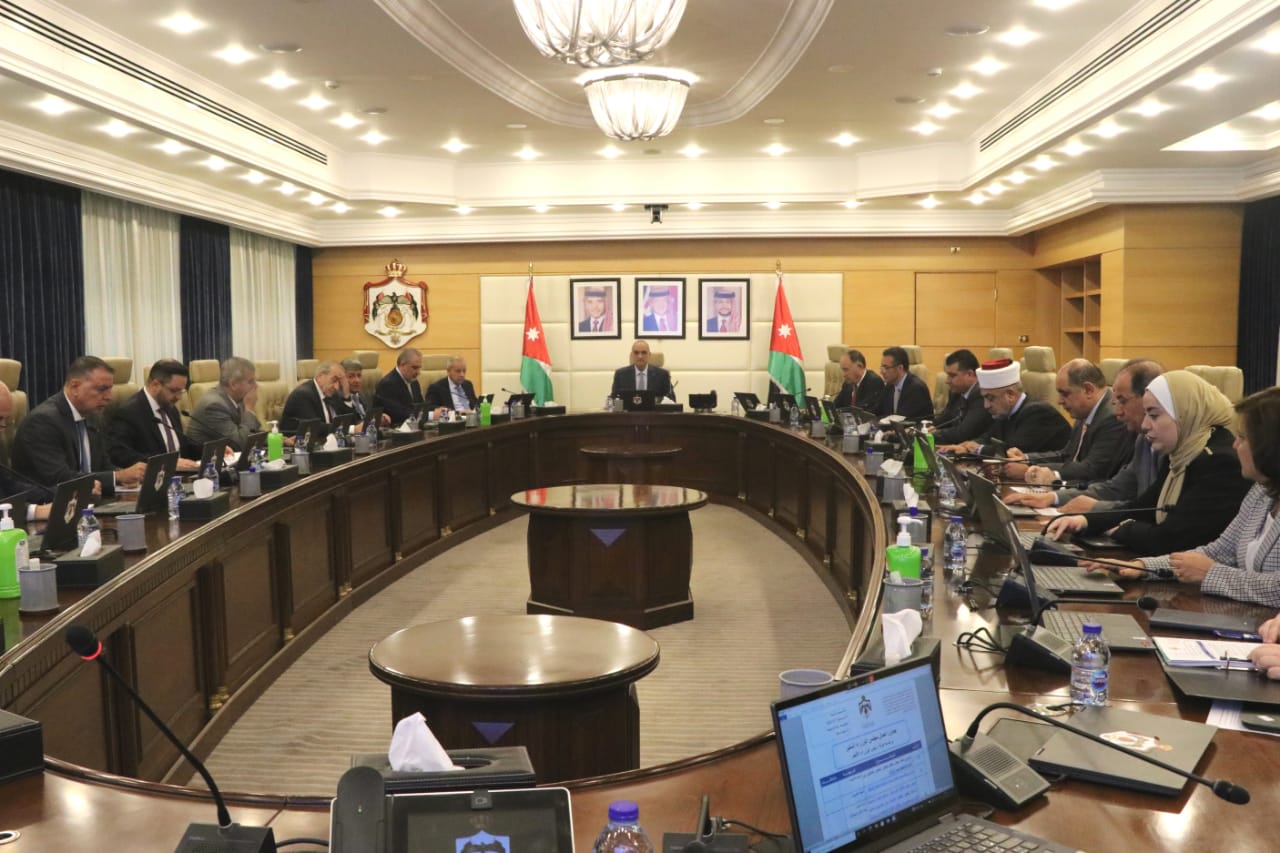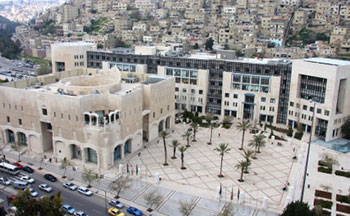 Ministry of Tourism and Antiquities
Ministry of Tourism and Antiquities
Ministry of Tourism and Antiquities
Minister

H.E.Mr Makram Mustafa A. QUEISI
Current position: Minister of Tourism and Antiquities
Date of Birth: March 31st 1970, Amman, Jordan
Academic Information:
• Master of Arts in Diplomatic Studies, Westminster University, United Kingdom (1999)
• B.A. in Computer Science, University of Jordan, Amman, Jordan (1992).
• Fluent in Arabic and English.
Career History:
• Ambassador to the Principality of Monaco (July 2020)
• Ambassador of Jordan to the Holy See - Vatican (December 2020)
• Ambassador Extraordinary and Plenipotentiary to France (October 2019-Current)
• Ambassador, Permanent Delegate of Jordan to UNESCO (October 2019-Current)
• Minister of Youth (2018)
• Jordan Sherpa for the Nuclear Security Process (April 2015)
• Ambassador Extraordinary and Plenipotentiary to France (October 2013)
• Ambassador Extraordinary and Plenipotentiary to the Holy See (December 2013)
• Ambassador Extraordinary and Plenipotentiary to the Portuguese Republic (March 2014)
• Ambassador, Permanent Delegate to UNESCO, (August/2014)
• Ambassador Extraordinary and Plenipotentiary to the Republic of Austria (December 2007-July 2013)
• Permanent Representative of the Hashemite Kingdom of Jordan to the International Organizations in Vienna (December/2007-July/2013):
o Preparatory Commission for the comprehensive Nuclear-Test-Ban-Treaty Organization (CTBTO)
o International Atomic Energy Agency (IAEA)
o United Nations Industrial Development Organization (UNIDO)
o United Nations Office on Drugs and Crime (UNODC)
o United Nations Office at Vienna (UNOV)
• Permanent Representative of the Hashemite Kingdom of Jordan to the Organization for Security and Cooperation in Europe (OSCE) (December 2007-July 2013).
• Ambassador Extraordinary and Plenipotentiary to the Republic of Slovenia (May 2008-July 2013)
• Ambassador Extraordinary and Plenipotentiary to the Czech Republic (April 2008-July 2013)
• Ambassador Extraordinary and Plenipotentiary to the Republic of Hungary (April 2008-July 2013)
• Ambassador Extraordinary and Plenipotentiary to the Slovak Republic (2008-2013)
• Dean of the Arab Diplomatic Crops in the Republic of Austria (April 2012-July 2013)
• Vice-Chairman of the IAEA Board of Governors (September 2011-September 2012)
• Governor from The Hashemite Kingdom of Jordan to the IAEA Board of Governors (September 2010-September 2012)
• Ambassador - Chief of Protocol at the Ministry of Foreign Affairs, Amman, Jordan (July 2005-October 2007)
• Ambassador - Coordinator for the World Economic Forum Annual Meeting (WEF), Dead Sea at the Ministry of Foreign Affairs, Amman, Jordan (April 2005-July 2005)
• Adjunct Lecturer at the Institute for Diplomacy, Amman, Jordan (2004-2007)
• Assistant Chief of Royal Protocol, Royal Hashemite Court, Amman, Jordan (1996-2005)
• Office Director, Office of HRH Prince Abdullah Bin Al Hussein, Royal Hashemite Court, Amman, Jordan (1994-1996)
• Coordination and Media Officer, Office of the Chief of the Royal Hashemite Court, Royal Hashemite Court, Amman, Jordan (1993-1994)
Head of Delegation:
o OSCE Ministerial Council in Helsinki, Finland (2008), Athens, Greece (2009), Vilnius, Lithuania (2011), Dublin, Ireland (2012)
o OSCE Mediterranean Conference in Cairo, Egypt (2009), Valetta, Malta (2010), Rome, Italy (2012)
o OSCE Ministerial Meeting in Almaty, Kazakhstan (2010)
o UNIDO General Conference
Thirteenth Session (2009)
Fourteenth Session (2011)
o Forum on Experience of Possible Relevance to the Creation of a Nuclear-Weapon-Free-Zone (NWFZ) in the Middle East in Vienna (2011)
o NPT 1st Preparatory Committee Meeting in Vienna (2012)
o Nuclear Security Ministerial Conference in Vienna (2013)
Distinctions:
o Grand Golden Badge of Honor of Austria in 2013
o First Order Medal of Independence granted by His Majesty King Abdullah II in 2007
o Second Order Medal of Independence by His Majesty King Abdullah II in 2004.
o Third Order Medal of Independence granted by His Majesty King Abdullah II in 2003.
o “Special Token” granted by His Majesty late King Hussein of Jordan for the efforts in the preparations of the Signing Ceremony of the Peace Treaty in Wadi Araba, between Jordan and Israel in 1994.
o British Medal by Queen Elizabeth II of Great Britain and Northern Ireland.
o Swedish Grand Officer Medal granted by His Majesty King Carl XVI Gustaf 2003.
o Decoration from Austria 2001
o Medals and Decorations from Spain, Norway, Italy, the Netherlands, and Ukraine.
Vision:
To create inclusive economic growth through authentic and sustainable tourism products & experiences and eliminate the impact of COVID-19”.
Mission:
We realize our vision through:
• Highlighting the uniqueness of Jordan’s history and heritage
• Development of products and experiences which exceed the expectations of international, regional and domestic tourists
• Solid partnership between the private sector and an empowered Ministry of Tourism and Antiquities
• Inclusiveness of local communities
• Preservation and protection of Jordan’s heritage and cultural sites
• Initiating meaningful reforms to accelerate investment and improve competitiveness.
Pillars of Tourism Strategy:
• Products
• Human Resources
• Marketing
• Heritage Protection
• Reforms
General Information
History of the Ministry
The first Bureau to undertake the supervision of tourist affairs in the Kingdom was set up in 1953 in
In mid 1953, as a result of the increasing number of tourists and pilgrims visiting the holy city, the Bureau was upgraded to a department, which reported directly to the Prime Minister. The law then stipulated that the Prime Minister or someone appointed by him would undertake to supervise this department's affairs.
In September 1953 the Department Headquarters was moved to
In 1956 the Government realized the need to ensure tourist services and facilities at border points. The first Rest House was thus constructed at Ramtha Border Point with assistance from the International Development Agency.
With a view to developing the performance of the tourism administrative apparatus,
In 1960 the Department of Tourism was transformed into an authority, which was administratively and financially independent working under the umbrella of the Ministry of National Economy.
In the same year, tourism legislation was issued for the first time with the aim of organizing the work of the public apparatus. Hence Law No. 17 of 1960 was issued, stipulating that a tourism authority council be formed under the Chairmanship of the Prime Minister or his Deputy and the membership of the following officials: Director of National Guidance, Undersecretary of the Ministry of Economy, Director of Antiquities, and Director of Tourism.
The law also stipulated that a Consultative Council for the authority be formed, to be headed by the authority's Chairman and to include the membership of representatives from hotels, tourism agencies, airline companies and chambers of commerce.
In 1964 the tourism authority became a department of the Ministry of tourism but its administrative status as an authority was maintained.
In 1965 the Tourism Law No. 45 of 1975 was issued in order to avoid changes in the previous law, and to ensure that all its clauses are implemented. The new law also aimed to enhance the participation of the private sector in the authority council and its policies. Furthermore, the law granted further responsibilities to the Authority Director and increased the budget of the authority to reach 20% of the annual revenue from tourism.
In 1967 a Royal Decree was issued whereby the tourism authority was upgraded to ministry level, to also include, under its umbrella, the Department of Antiquities. The tourism portfolio was given to a minister who became a cabinet member in the government, which was formed at the time.
In the same year and in the aftermath of the war, it was part of a policy to shrink the number of ministries. Tourism was once again an independent authority under the umbrella of the Ministry of Information and later the Ministry of Economy, Industry and Trade.
In 1981 Tourism, Antiquities, Culture and Youth were all integrated in one ministry named the Ministry of Tourism, Antiquities, Culture and Youth, while maintaining its status as an independent authority.
In 1982 Tourism became part of the Ministry of Industry and Trade.
In 1985 Tourism became part of the Ministry of Information, Culture and Tourism.
In 1988 Tourism was given a separate portfolio under the name of the Ministry of Tourism. In the same year the Tourism Law No 20 of 1988 was approved.
In 1989 the Department of Antiquities became part of the Ministry of Tourism, which thus became the Ministry of Tourism and Antiquities.
In 1988 the Antiquities Law No 21 of 1988 was issued ensuring that Antiquities existed under the umbrella of the Tourism Ministry.
Vision Statement
“Economic Prosperity through Sustainable Tourism Development”
“The Tourism we seek”
Activating the role of the tourism industry to highlight Jordan’s attractions and to distinguish Jordan as a unique tourism destination, and in appreciation of the role of tourism to national income by generating foreign exchange earnings, and, in recognition of the important role of the private sector in investment and development, this Ministry will work towards developing tourism in a comprehensive and integrated approach to express the nation’s legacy, culture, history, heritage, inheritance, successive civilizations and economic prosperity as well as enhancing the noble human values based on peace and mutual respect among nations.
3 P's of Tourism
The strategy is based on the principles of three P’s:
1. Product
a. Define Product
b. Market
c. Infrastructure
d. Superstructure
2. People
3. Promotion
Contact Information
- Address
- 3rd Circle - Abdel Moneim Riyad Street - Building Number 64
- Telephone
- (962) 6 4603360
- ZIP Code
- 11118
- Website
- https://mota.gov.jo/Default/En
- Fax
- (962) 6 4648465





